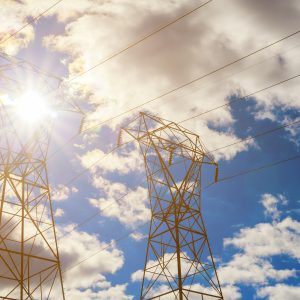News
Share on
Immediately, with the Bills Decree, cut the cost of CO2 emissions to lower the price ofelectricity. Then separate an increasing share of renewablescheaper, from the rest of the market. And in perspective bet on the nuclear. It is a question of 'survival' according to Aurelio Regina, Energy Delegate of Confindustria.
"Italian companies pay 87% more for electricity than French companies and 38% more than German companies. Our generation mix depends more than anyone else on the cost of gaswhich is the result of a European stock market dominated by hedge funds and disconnected from reality. The Commission has realised that this is splitting the single market, but the change of course is slow and cumbersome,' Regina added, listing some of the proposals: 'We are working on various hypotheses. One is to zero the difference between the Italian gas price and the European one, around EUR 3, which is worth EUR 1.3 billion, and implement gas release, for example through biomethane. Another is to revise the system so that electricity from renewables, which does not emit CO2, is not also associated with ETS costs'.
These measures,' he emphasised, 'are addressed to everyone, including families.
Furthermore, decoupling 'is a proposal that Confindustria made as early as 2022 and Italy is partly doing it with the energy release which takes 24Terawatts off the market and advances them to companies at EUR 65. The GSE should also be able to allocate to all companies the old plants to be regenerated and those we will install to reach the EU targets.
'Hydropower is an asset of the country,' Regina emphasised, 'The Draghi government had made the commitment of tenders in the NRP, but in the meantime the world has changed. I think it can be revised under certain conditions, including reserving a share of production to support industrial policies. Renewables have so far been given incentives worth 200 billion, a Marshall Plan, and the market price is set by gas, which has increased a lot in recent years. They are not unjustified because these were the rules, but now the benefit can be passed on to consumers and decoupling goes in this direction'.
Asked about the economic situation Regina said: whether the government has moved "Sooner or later is hard to say, who could have imagined the developments of the last few years? This emergency comes from afar, from the choice - not only ours - of tying ourselves to a single supplier, it cannot be solved with a magic wand'.
But in the meantime, regulatory interventions on the renewables front risk slowing down installations: 'The agriculture decree has already severely slowed them down, contrary to the government's own objectives. We are calling for a round table with Minister Lollobrigida to understand whether derogations are possible on agricultural land subject to reclamation or on the 'belts' around industrial plants, limited areas without which it is difficult to make the installations envisaged by the energy release. It is necessary to speed up the authorisation processes for renewables and, where possible, make them free activities, as in the case of repowering existing plants. But the point is that renewables alone will not be enough to meet the growing demand for energy, all the more so in a country with the territorial characteristics of Italy'.
In this scenario, 'nuclear power is unavoidable,' Regina warned, 'if we want to decarbonise in 20 years' time and remain a major industrial economy. Third- and fourth-generation nuclear power "could be on the market in six to eight years' time. In Confindustria we are also studying the economic profiles with ENEA, at the moment the studies speak of a cost comparable to renewables, considering that those only work 1,200 hours a year and need accumulation and networks. The two technologies are integrated, not competing: we need a source that guarantees energy when it rains or there is no wind, and nuclear power is the only clean alternative together with thermoelectric with CCS'. And on the ability to define suitable sites 'is measured our ability to be a country,' concluded the Energy Delegate: there is a national interest that goes beyond that of the communities, around which politics must find unity'.


















